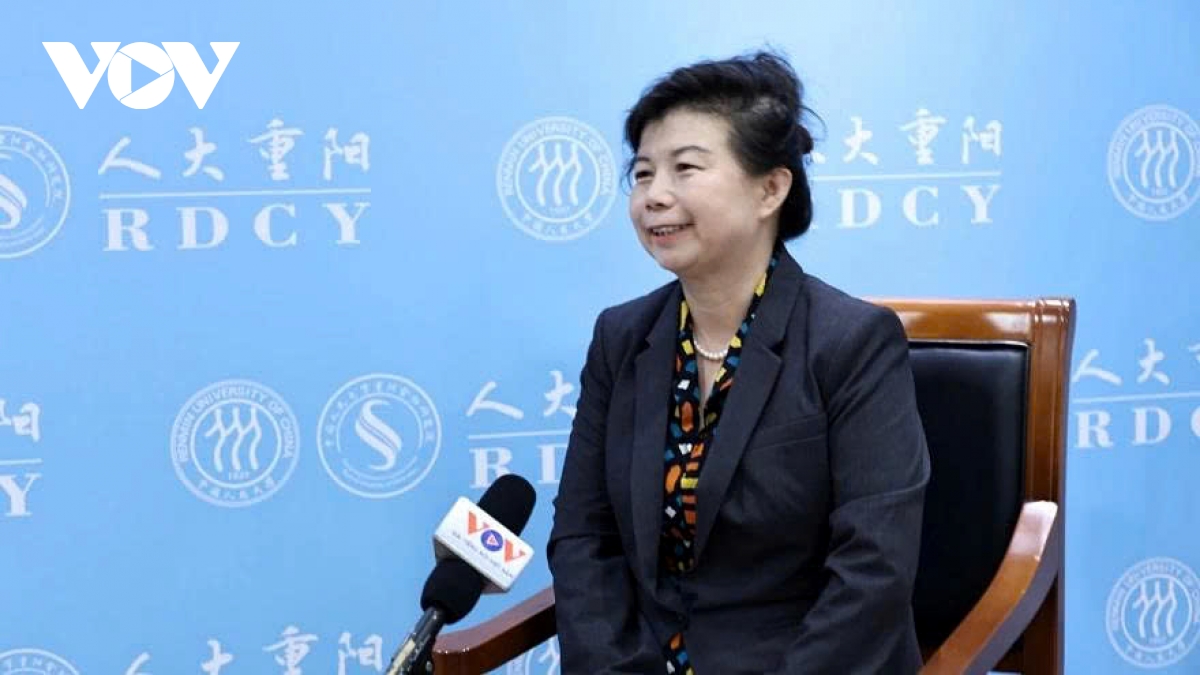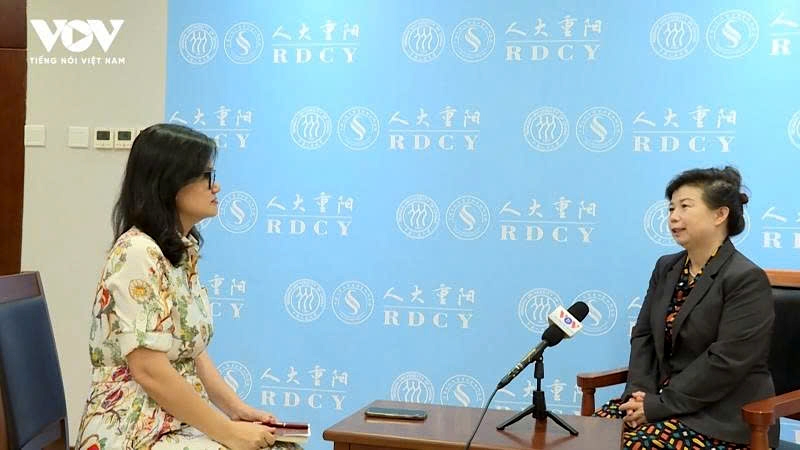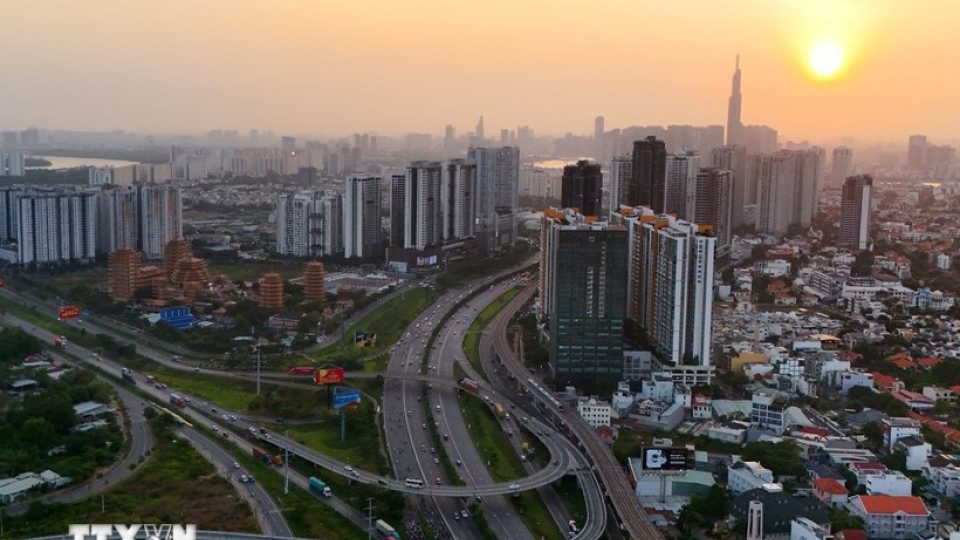Vietnam poised for dynamic growth, says Chinese scholar
VOV.VN - Professor Liu Ying of the Chongyang Institute for Financial Studies at Renmin University of China has praised Vietnam’s achievements over the past 80 years and emphasised that the country holds enormous potential for future development.

Professor Liu, in an interview recently granted to Beijing-based VOV correspondents, said since gaining independence in 1945, Vietnam has undergone multiple phases of development, from post-war reconstruction to economic reform and international integration. The launch of the Renovation policy in 1986 marked the country’s official transition to market-oriented reforms, driving impressive economic growth and transforming Vietnam from an agriculture-based economy into a rapidly emerging market with vibrant manufacturing and service industries.
According to Professor Liu, Vietnam’s progress is most visible in the economic sphere. Since the adoption of Renovation, the country has maintained consistently high growth rates. In 2024, its GDP reached nearly US$460 billion, many times higher than in 1986, while per capita GDP rose from less than US$100 in 1986 to about US$4,700 in 2024.
“Vietnam will soon surpass US$5,000 in per capita GDP, and eventually reach US$10,000 in the coming years, gradually joining the ranks of upper middle-income countries. This is of great importance, as it will improve people’s welfare - an essential goal that has guided Vietnam’s development over the past eight decades, with the vision of building a prosperous nation and a strong state,” said Professor Liu.
She also commended Vietnam’s growing participation in major international trade organisations, including ASEAN Free Trade Area (AFTA), the World Trade Organisation (WTO), the Regional Comprehensive Economic Partnership (RCEP), and the Comprehensive and Progressive Agreement for Trans-Pacific Partnership (CPTPP). She underlined Vietnam’s involvement in the world’s largest free trade bloc—comprising ASEAN, China, Japan, the Republic of Korea, Australia, and New Zealand—which has provided a strong foundation for its export-oriented growth. In her assessment, these achievements signal that Vietnam is undergoing transformative development.
In the interview, Professor Liu attributed such achievements to the clear-sighted leadership of the Communist Party of Vietnam (CPV), which she said has played an extremely important role in the country’s development.
“Without the Party, Vietnam would not have achieved the remarkable progress it enjoys today. Most importantly, the CPV led the Vietnamese people to revolutionary victory and the establishment of a socialist state. As the ruling party, it has persistently guided the people to success in national construction as well as in improving people’s living standards,” remarked the scholar.

She expressed strong optimism about Vietnam’s future development, describing its growth as both dynamic and sustainable. She pointed out that Vietnam’s close relations with China, along with its increasingly important role in ASEAN, East Asia, and the wider global arena, provide a solid foundation for further advancement. At the same time, ongoing political and administrative reforms are expected to enhance the quality and sophistication of its socio-economic development.
From an economic perspective, Vietnam’s young population and steadily expanding consumer market represent key advantages. Despite the challenges posed by geopolitical conflicts and high tariffs, Vietnam recorded GDP growth of 7.96% in the second quarter of 2025, the highest rate in nearly two decades. Exports also showed strong performance, reaching a cumulative value of US$262.4 billion in the first seven months of 2025, highlighting the country’s pivotal role in global supply chains.
However, Professor Liu acknowledged that Vietnam still faces hurdles including inflationary pressures, rising labour costs, and limited infrastructure. Looking ahead, she stressed that Vietnam would further advance industrial upgrading, increase the added value of its manufacturing sector, and accelerate infrastructure development in order to sustain long-term economic growth.




